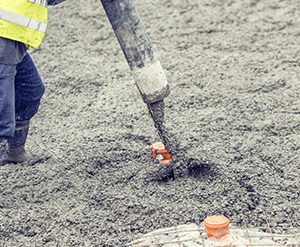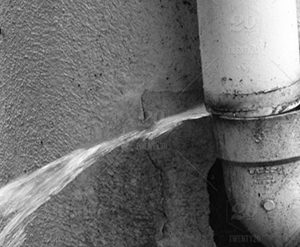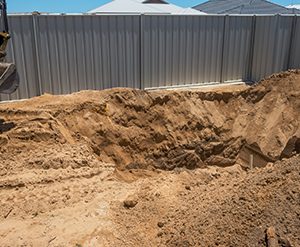Your home’s security and stability depend on a robust foundation. If you spot cracks in the foundation, it’s a clear alarm, suggesting potential structural issues demanding immediate attention. These cracks aren’t just cosmetic problems; they signal underlying issues that can cause major structural damage if ignored. To protect your home’s structural integrity, it’s crucial to understand the causes of foundation cracks.
Recognizing the Problem: Foundation Cracks
Foundation cracks, as the name suggests, are splits or breaks that form in the foundation of your home. They range from tiny, hairline fractures that are barely visible to significant cracks that span large sections of the foundation. These cracks occur due to various factors, each potentially compromising the safety, stability, and resilience of your home in unique ways.
It’s crucial to note that foundation cracks are more than just eyesores; they can be early warning signs of impending structural damage that could escalate if left unchecked.
Digging Deeper: Causes of Foundation Cracks
The causes of foundation cracks can be numerous and varied, often intertwining and building upon each other. It’s not always a single factor that leads to these cracks, but rather a combination of conditions that work together to create the problem. Understanding these causes can provide vital insight into the best course of action for repairing and preventing foundation cracks.
Concrete Curing and Foundation Cracks
 Concrete’s curing process plays a pivotal role in its lifespan. Starting immediately after pouring and finishing the concrete, it ensures the right moisture and temperature conditions deep within and on the surface. This phase not only determines the concrete’s strength and longevity but is also when foundation cracks might emerge.
Concrete’s curing process plays a pivotal role in its lifespan. Starting immediately after pouring and finishing the concrete, it ensures the right moisture and temperature conditions deep within and on the surface. This phase not only determines the concrete’s strength and longevity but is also when foundation cracks might emerge.
Shrinkage Cracks: Causes and Characteristics
As concrete cures, internal stress can lead to shrinkage cracks, which arise as the concrete attempts to alleviate this stress. These cracks’ size, shape, and origins can differ based on your home foundation’s unique features.
In block foundation walls, for example, curing and temperature changes often cause shrinkage cracks to start from the center. On the other hand, poured concrete foundation walls might develop cracks from factors like rapid curing, an inadequate mix, or steel reinforcement. Persistent temperature fluctuations and seasonal weather changes can also make concrete expand and contract, resulting in cracks.
Bricks and Foundation Cracks
Although not popular in contemporary foundations, bricks are common in many older structures. Unlike other materials, bricks don’t shrink. Instead, they continuously expand, increasing the chance for foundation cracks.
In conclusion, the very process that strengthens your home’s foundation can sometimes lead to its gradual wear. Grasping this intricate balance necessitates a deep understanding of the materials and techniques used in building your home.
Plumbing Leaks
 An often-overlooked cause of foundation cracks is plumbing leaks. Plumbing problems can be a homeowner’s worst nightmare, primarily due to their hidden nature. It can be challenging to locate a faulty pipe, and by the time it’s found, the leaking water may have already seeped into the soil beneath your home’s foundation.
An often-overlooked cause of foundation cracks is plumbing leaks. Plumbing problems can be a homeowner’s worst nightmare, primarily due to their hidden nature. It can be challenging to locate a faulty pipe, and by the time it’s found, the leaking water may have already seeped into the soil beneath your home’s foundation.
As water accumulates underneath your home, it creates an excess of moisture. This damp environment softens the ground supporting your foundation, compromising its stability. Eventually, this undue stress can lead to the formation of cracks within the foundation. It’s an insidious process – out of sight and often out of mind – until the visible signs of foundation cracks appear. Therefore, ensuring your home’s plumbing is in good condition is crucial for maintaining the integrity of your foundation.
Soil Issues Beneath Foundation
 The soil type beneath your home’s foundation is another vital factor contributing to the stability of your property. It might seem insignificant, but the type and condition of soil can significantly affect your home’s structural stability.
The soil type beneath your home’s foundation is another vital factor contributing to the stability of your property. It might seem insignificant, but the type and condition of soil can significantly affect your home’s structural stability.
For example, settling soil can result from poorly compacted footers during construction. It can also be due to the use of loose fill-dirt to level the ground beneath your foundation. As this soil settles over time, it creates an uneven support system for your home, causing the foundation to shift and crack.
Expansive soil, on the other hand, absorbs water and expands. During dry periods, this soil shrinks, causing movement in the foundation above and potentially leading to cracks. Similarly, excessively dry soil can also lead to foundation cracks due to its shrinkage.
Understanding these soil-related issues is paramount in both preventing and addressing foundation cracks. It’s not simply about managing the symptoms but also about tackling the root causes of the problem.
How to Fix Foundation Cracks
Identifying foundation cracks and understanding their origins is a critical first step in home upkeep. But that’s just the start. You must act quickly and efficiently to prevent these problems from turning into major structural damages. While DIY solutions might tempt some for their cost-effectiveness, repairing foundation cracks demands a deep understanding and expertise.
Foundation cracks aren’t simple surface fixes; they represent deep-seated challenges that require meticulous attention. It’s essential to pinpoint the crack type, determine its cause, and select the right repair approach.
Without professional insight, you risk misdiagnosing the problem and choosing ineffective solutions, potentially doing more harm. If you leave foundation problems unresolved or address them poorly, they can reappear. In extreme situations, this can lead to a disastrous structural collapse, jeopardizing your home and family’s safety.
Addressing Foundation Cracks Head-On
Foundation cracks might appear minor, but they undeniably threaten your home’s integrity. Whether they stem from concrete curing complications, plumbing leaks, or challenging soil conditions, addressing them promptly and professionally is essential. Neglecting them might escalate to bigger challenges, jeopardizing your home’s stability.
At Crackmasters Basement Waterproofing Systems, we have over twenty years of expertise, guaranteeing foundation repair solutions that last. Whether pinpointing the source of a leak or utilizing cutting-edge waterproofing methods to prevent further harm, our team ardently defends your home’s foundation integrity.
Our foundation repair services encompasses basement waterproofing and crack repairs. Serving the Greater Toronto Area and its neighboring cities, we assure our clients that their homes are in skilled hands. Recognizing the apprehensions homeowners face with foundation issues, we’re dedicated to providing solutions that reinstate your home’s structural health and your confidence.
Recent Posts
Ready to Sell? Common Basement Issues to Fix Before Listing
Preparing to sell your home involves more than just staging the living spaces and enhancing
Steps for a Comprehensive Basement Health Audit
Often overlooked, a healthy basement is a vital contributor to a safe and comfortable home
Common Causes of Foundation Leaks
Maintaining a dry basement is crucial not only for comfort but also as a fundamental

